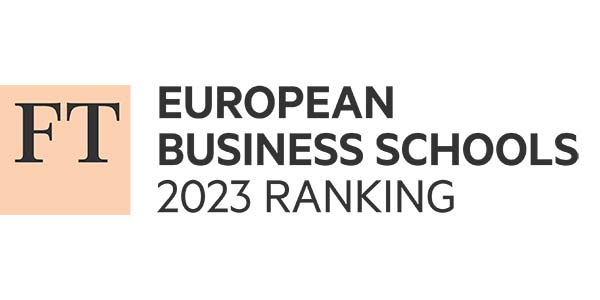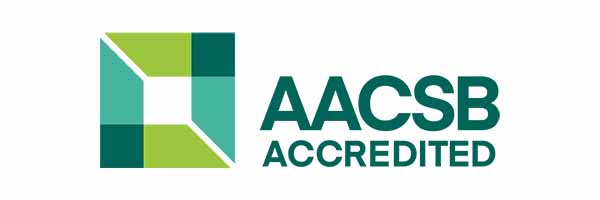BA Hons Marketing & Business Law
ApplyKey facts
- UCAS Code: NM52
Second-year entry: may be available to suitably-qualified students
Applicant visit days: in March each year
Study with us
- develop skills for a variety of marketing and management careers
- study in a leading UK centre of marketing education
- gain an insight into the way law affects organisations
- benefit from the opportunity to take part in student competitions to win paid internships
- broaden your knowledge through guest lectures by leading industry experts
- Strathclyde Business School has a strong reputation for effective working with business, industry and the public sector
The Place of Useful Learning
UK University of the Year
Daily Mail University of the Year Awards 2026
Scottish University of the Year
The Sunday Times' Good University Guide 2026
Why this course?
The Department of Marketing at Strathclyde is recognised as one of the leading centres of marketing education and research in the UK.
This course will help you develop the skills for a variety of marketing and management careers. You’ll understand customer requirements, added-value products and services and the role of communications in customer satisfaction.
Business Law covers the general principles of commercial law and business legal regulations. These include company law, competition law and human rights law.
Business Law can only be studied as a second subject as a Joint Honours option.


Create your own course
Modern business is too complex to be covered by a single subject: modern managers need to have a broad outlook.
You'll follow a broad-based Year 1 curriculum which will introduce you to a wide range of business disciplines, alongside the Business School’s core modules for business knowledge and skills (the Management Development Programme), and academic skills support.
This provides you with the opportunity to try new subjects, some of which you won’t have experienced at school or college. At the beginning of Year 2, you choose two subjects to continue studying in Years 2 and 3, plus further MDP modules in Years 2 and 3.
What you’ll study
Marketing
Year 1
You'll learn about the basic principles of marketing and explore marketing within an organisation.
Year 2
Students will look at areas including the factors that influence buyers and the challenges that marketers face in the retail and service sectors.
Year 3
You'll learn the fundamentals of both traditional and digital marketing communication along with gaining an understanding formulating a strategic marketing plan.
Year 4
In your final year of study, you'll learn about the value of brands to firms and consumers. Options include International Business Management, Sports Marketing and Social Marketing.
Work placement
Third-year students have the option to study abroad at one of our partner institutions across a number of countries worldwide. This study period can last for one or two semesters.
Student competitions
CIM The Pitch
Each year, students are offered the opportunity to partake in the annual student marketing competition – CIM The Pitch in which students are able to apply theory to practice for a live brief for a major company operating within the UK. Students from Strathclyde have been awarded first place in this competition for three years running (2018, 2019 & 2020). This competition is open to all second, third and Honours year students.
The Marketing Society Awards
The Marketing Society Awards: students write an essay, compete in an ‘Apprentice-style’ day in Edinburgh and shortlisted students attend an awards ceremony in May. The prize is a three-month paid internship.
Target Jobs, Scotland Undergraduate of the Year Award
Target Jobs, Scotland Undergraduate of the Year Award: students must sit a series of online tests, application forms, interviews and assessment exercises, culminating in an awards ceremony in Canary Wharf, London in April. The prize is the chance of a graduate job with a number of leading companies.
These prizes were won by Strathclyde Marketing students in 2018.
Business Law
Year 1
The core Business Law class introduces the main areas of study including the law of contract and negligence – the essential building blocks for all areas of law.
Years 2 & 3
You can choose from a variety of business-related law subjects and select from a wide range of electives.
Year 4
You can select Business Law as part of a Joint Honours degree, studying it in greater detail.
Progression requirements
Please note: competitive progression requirements are in place for entry to the Honours year – currently this is a 55% average in the Year 2 and 3 subject modules.

The ability to customise your degree by gradually focusing your studies each year allows you to develop a strong set of skills that naturally carries through into your chosen career.
Marketing
Course content
In Year 1 you'll study a range of business disciplines across four subject modules, plus three core integrating modules in international business, business knowledge and skills (via the Management Development Programme) and academic skills. This will provide you with a foundation in business and enable you to appreciate how your chosen specialism fits with other business subjects. From Year 2 you'll take modules in the subjects in which you choose to specialise.
The Management Development Programme (MDP) is a central element of the undergraduate programme in the Strathclyde Business School. The programme runs for the first three years of the BA degree and is driven by real business problems. The approach to learning is active problem-based, with students working in project teams. The MDP provides an opportunity to integrate the knowledge and experience gained from your business subjects. Each year of MDP focuses on different aspects of business and the content of MDP is constantly evolving and being updated and enhanced.
Alongside the MDP you'll also take an Academic Skills module which will equip you with essential key skills to support your studies.
Marketing
Introduction to Marketing & Entrepreneurship
The aim of this module is to provide you with a solid foundation and understanding of the theories and principles underlying marketing and entrepreneurship. A combination of the subjects will be taught to enhance understanding of the way the two disciplines address issues related to both the macro and micro-environment contexts of markets and entrepreneurship.
Marketing is everywhere in contemporary society. It plays a central role in business as it is concerned with the creation and retention of customers. The module is designed to give you a foundational understanding of marketing and a critical introduction to the topic of marketing in both theory and practice through a series of lectures and workshops.
In your first-year class you will explore the core concepts of value and exchange. You will learn what marketing is and its core principles such as analysing the marketing environment, developing a marketing strategy, and dealing with the marketing mix i.e., product, price, place, and promotion. You will learn how organisations develop a customer centric approach to marketing and how that can create a competitive advantage in a dynamic business environment.
The assessment for this module will involve individual coursework.
In this module, you will be exposed to concepts and ideas from economics, sociology, psychology, geography and other social sciences, all in the context of the competitive business environment.
Entrepreneurship too is a complex process involving many different skills and activities, though it is based upon a 'mindset and process by which an individual or group identifies and successfully exploits a new idea or opportunity. For this part of the module, you'll be working in teams to learn about the ideation process, which forms the foundations of new venture creation, in our Creative Challenge.
Introduction to Finance and Financial Analysis
This module will provide you with an introduction to finance and accounting, covering the basic concepts and practicalities of corporate finance, the principles of valuation, financial management and business investment, the role and purpose of company accounts and their usefulness, security analysis, risk and returns from investments, and personal finance.
At all times the module content will be linked with financial behaviour and events in the real world.
Introduction to International Business
This module introduces learners to the field and practice of international business and management.
Drawing on classical and recent debates in theory and practice including, but not limited to commercial concerns, learners will be equipped with an understanding of the foundational principles and developments of the subject.
In the module, we consider how international business and management is researched, and facilitate a critical understanding based on real-life case studies in international contexts. This module gives learners the capacity to look at the past, present and future in organisations and provides the foundations for intellectual progression in the subject, and broadly, for year two and beyond.
Introduction to Economics and Business Analysis & Technology (20 credits)
The module will provide you with a balanced introduction to economics which will be based on a programme of systematic directed reading, supplemented by experiments and exercises undertaken in tutorials.
The module uses the innovative CORE (Curriculum Open-Access Resources in Economics) Econ resources, which provides a complete introduction to economics and the economy. CORE Econ teaches about the economy and economics by starting from a question or a problem about the economy - why the advent of capitalism is associated with a sharp increase in average living standards, for example - and then teach the tools of economics that contribute to an answer. This innovative approach ensures that students understand how the tools of economics can help us understand the modern economy.
The second half of the module is the study of how analytical thinking, scientific method and associated tools can be used to help decision making. This Business Analysis element of the module will provide an overview of where methods and tools are widely used across a large range of industries including the manufacturing, retail, healthcare, financial services, travel, and electronics industries, as well as in local and national government.
Examples of where Business Analysis is put into practice are:
- the management of new building projects
- the design of efficient transport systems and plant layouts
- personnel scheduling
- allocation of resources and financial modelling and forecasting
This area of expertise can help to reduce costs, increase revenues, improve customer service, increase efficiency and can even save lives.
Introduction to Tourism Studies and Managing People
This module includes two thematic parts which run in parallel across the semester. One part, Introduction to Tourism Studies, introduces tourism management as both, international business and as a global cultural phenomenon.
It provides insights into key concepts and theories to understand the intricacy of this industry in commercial, cultural and environmental terms. The other part, Managing People, focuses on the contemporary and practical issues of how people are organised and managed in the workplace and examines different theoretical perspectives which help our understanding of the complex relationship between the employer and the employee in the contemporary business environment.
Management Development Programme 1
The ICE Pathway - “Innovation, Commercialisation & Entrepreneurship”, where you'll learn about the Foundations of 'What is Business’. Alongside:
- Personal & Professional Development: Who am I? How Do I learn? How do I lead & work in a team?
- Knowledge & Practice: What is a business/organisation? Why does this matter? How does this affect society?
- Experiential Learning: Real-world cases & clients; team-based and student-centred Learning approaches
Academic Skills
This class aims to support you in developing key skills that are important to both your academic and future career. These include skills associated with:
- research
- data analysis
- critical writing
- team working
- communication
Business Law
Course summary
Management Development Programme 2
Topics
Semester 1 topics include:
- Working in Business Organisations
- Working Business Research & Consultancy
- Working Internationally
- Working in the Third Sector
- Rhetorics & Oratory
Semester 2 is about developing the proposal of Management Development Programme 3; with a presentation and a final report.
Class description
The second year concentrates on developing understanding through industry-specific contextualisation. Sessions are weekly and three hours in length.
The sessions are thematically linked to the pathways for individualised experience in third year whilst also drawing on the theoretical knowledge developed in Management Development Programme 1. In order to develop understanding, organisations will deliver a half-day session. This consists of a one hour plenary introduction where the company and case study are introduced. This is followed by the group sessions where you undertake activities in relation to the case study set by the company.
Marketing
Semester 1
Understanding Consumers & Markets
Many of the fundamental concepts of marketing are based on an ability to understand consumers and how these concepts can be implemented more effectively when adequate information about the market and potential consumer behaviour is available.
In this module you will explore factors that influence consumer behaviour and shape consumption practices. The module will draw upon psychological theories to examine how memory, social influence, personality, attitudes and learning influences consumers. You will develop an understanding of consumer behaviour from both managers and consumers perspectives.
The module will also introduce you to key concepts and techniques in market research and how market research can be used to understand consumers changing behaviours. The module will provide you with an in depth understanding of qualitative and quantitative research methods and prepare you for practical market research projects.
You will also gain an opportunity to acquire an industry recognised qualification from the Market Research Society.
The assessment for this module is a combination of individual and group coursework.
Semester 2
Services & Retail Marketing
The service sector is large and a growing feature of the UK economy. In addition, most manufacturing, and product-based organisations (e.g., IBM) encompass extensive service functions as well as product operations. As consumers, we purchase services everyday- be it retail banking, shopping at a supermarket, going to a restaurant, visiting the hairdresser, using transportation services, or engaging with experiential services such as tourism, sports, theatre. Therefore, it is important to understand the problems and challenges in designing and delivering high quality services for customers and businesses.
This module will encourage you to explore and reflect on real world services. The module will help you understand the unique characteristics of services and how service organisations require a distinct approach to marketing strategy both in its development and in its execution. You will draw upon your foundational learning knowledge of marketing in Year 1 such as the marketing mix and further learn about the extended marketing mix.
The module will also provide you with insight into service retailers. You will learn about key elements of service retailers that influence the development of retail strategies and the interaction between consumers and retailers at both in-store and online operational levels. You will also develop an understanding of the dynamic nature of supply chains and innovative distribution channels. You will explore different retail contexts and the supply chain relationships required to create value alongside strategies for sustainable practices.
The assessment for this module is a combination of individual and group coursework.
Business Law
Course summary
Management Development Programme 3
The third year of centres on individualised experience in an organisational context through one of the following pathways:
- Internship/Charities - gain practical experience in a private or third sector organisation. You need to negotiate and locate your own organisation and experience – this is one of the key learning points of the pathway.
- Research and consultancy - a facility for local small businesses to gain from the experience and expertise of those within Strathclyde Business School. You work on two live business consultancy projects (one in each semester) and, as a team of six, develop solutions and strategic initiatives for the local SME economy.
- International experience – only available for students who are undertaking an international exchange for either one semester or full year.
- Vertically Integrated Projects - working on a cross-faculty basis to research longitudinal projects (including the ‘Bill Gates Toilet Challenge, Solar Panels for Gambia and Enterprise in Schools) you work with a team of students from all levels of study (first year undergraduate to final year PhD) to further the work of the project.
In addition, you’re required to undertake a social responsibility element (this accounts for one quarter of the overall workload).
These have been designed to provide support to the Curriculum for Excellence and the Widening Access to Higher Education programme. There are no formal classes for Management Development Programme 3 although there is pathway support with the pathway leads and tutor support.
Marketing
Marketing Communications in the Digital Age
Every business, organisation and media outlet relies on traditional and digital communications to communicate their products and services to consumers and businesses. As the change and consumption of different media continues to increase, there is a demand for graduates to embrace new technologies and engage in innovative content creation for traditional and digital marketing communications.
In this module you will explore the various forms of traditional and digital marketing communications. You will gain an understanding of the strategic role of marketing communications and the integration of both traditional and digital communications to develop a marketing communications plan. You will further explore the role of social media marketing and mobile marketing in the digital world and learn how to develop a digital marketing campaign using a range of digital tools such as SEO, PPC, Google AdWords etc.
The assessment for this module is a combination of individual and group coursework.
Semester 2
Strategic Marketing in an International Context
The module aims to equip you for a career in strategic marketing in various industries. It is important for marketers to obtain a good understanding of various perspectives on marketing strategy and to develop the ability to evaluate, design and implement a sustainable and profitable marketing strategy.
In this module you will learn strategy formulation and planning aspects associated with strategic marketing in domestic and international contexts. The module will further stimulate your thinking around questions such as:
- Why some products or services succeed and why others fail?
- What are the challenges involved in designing and implementing a profitable and sustainable marketing strategy?
The assessment for this module is a combination of individual and group coursework.
Business Law
Course summary
Marketing
Core class
Brand Management
The importance of brands raises significant questions of how to develop brand equity and how to communicate a branding strategy of differentiation, value and identification. The role of the Brand Manager is reviewed along with formulating the necessary communication strategies to build brand equity and secure market share.
More recent approaches in this vein suggest that the traditional Brand Management approach is all too limited, leaving many questions unanswered. Consequently more recent approaches address the co-construction of brand value, through viral branding, using social media, co-branding and brand extensions. In this respect, the principles of branding are now being applied beyond simply new product development, to such strategies as places, communities and countries.
Other key strategies that may be discussed include, luxury branding, nation branding, business-to-business branding and corporate brands.
Dissertation
Elective classes
Social Marketing
This course aims to build foundational knowledge of traditional commercial-oriented Marketing, by examining applications of Marketing in a social context. Each year millions of pounds are spent world-wide to combat health and social problems such as HIV/AIDS, smoking, drug and alcohol abuse and rising obesity levels. At the same time excessive consumptions burdens society with building landfills and increasing pollution. Meanwhile there are still people who consume 'too little' and who suffer from hunger.
The class considers recent research in a variety of Social Marketing contexts and material is continuously updated to ensure that students gain an understanding of the most relevant and critical Social Marketing trends.
Advances in Consumer Behaviour
This class provides you with an understanding of some of the contemporary issues and challenges in understanding consumers. Building on the undergraduate Consumer Behaviour class, this module aims to develop your ability to analyse consumer behaviour in a variety of situations and to explore the complexity of 21st century consumption.
The class reviews consumer trends and the significance of consumer culture, and then explores topics that are the focus of recent research attention. Current topics include:
- consumer identity (possessions and body image)
- consumer vulnerability
- postmodern consumers
- consumer tribes
- consumption spaces
- consumers and celebrities
- consumers and ethics
Managing Customer Relationships
International Business Management
This class examines the theoretical underpinnings which help explain the operations of such enterprises, covering both international business strategy and international business management. This will be achieved by exploring contemporary issues in academic thought and international business practice.
Managing Integrated Marketing Communications: Theory & Practice
The class will create a learning environment in which students can enhance their knowledge of relevant marketing communications theories and develop the necessary analytical, creative and decision-making skills required to effectively manage IMC in a variety of contexts.
Sports Marketing
This class provides you with an opportunity to study and apply marketing principles and concepts to a sector that has gained increasing significance in society world-wide. We’ve witnessed the emergence of a sports culture in many countries. This, in turn, has led to the emergence of sport as a global industry.
Sport is one of the most important sectors in the UK in terms of spectator interest, participation and consumer spending. It is also a varied industry consisting of sports products as well as sports services, spectator sports, sports media and sport-related travel.
Sustainability, Marketing & Society
This class explores sustainability and the role of marketing in society as an agent of change. Marketing as a discipline is often tarnished by the assumption that it focuses on encouraging overconsumption, driving sales for sales sake and is misleading the public. Whilst this is often true, marketing also has a substantial role to play in tackling the biggest challenges in our society, and in particular driving societal discourse and market change towards the attainment of the Sustainable Development Goals (SDGs).
This class builds from a foundation of evidence-based marketing, driven by systems thinking, understanding full product and service life cycles and fact-led decision-making. Ensuring the claims made and communication approaches employed are substantiated, well-designed and targeted at change for good. A number of different techniques are explored to identify and exploit vectors for change through different approaches to understanding market systems, targeting key stakeholders to drive change, and marketing tactics for reshaping market, organisational and consumer behaviour. The class is an advanced marketing class, assuming a sound grounding in areas of consumer behaviour, branding, strategic marketing and marketing research as a foundation on which more advanced concepts can be built.
Business Law
Course summary
Learning & teaching
Teaching is over two semesters in blocks of 12 weeks. Classes are taught through lectures, tutorials, and seminars alongside team-based projects, online materials, and interactive sessions using personal response systems.
External contributors from partnership corporate organisations are involved in teaching and/or assessment of student presentations.
Many of our Marketing classes have guest speakers throughout the year from leading experts e.g. Procter & Gamble, Clydesdale Bank, Accenture, Leith Agency, LIDL.
The innovative and highly acclaimed Management Development Programme (MDP) is at the core of our undergraduate degrees in the Business School and comprises a series of classes which you take throughout Years 1 to 3.
You develop knowledge and skills in key areas of management, and team-working, communication and decision-making skills, all of which are highly sought-after by employers.
Major employers and alumni from all sectors are involved in the MDP, participating in group sessions, observing student presentations, and providing feedback. Organisations involved include Barclays, Deloitte, Procter & Gamble and Ernst & Young. In first year the best teams are selected to present to senior staff in one of the sponsoring organisations, and there are prizes for the best projects.
The programme builds your confidence and entrepreneurial capabilities, and promotes awareness of globalisation and ethical issues in personal and business decision-making. In Year 3, you develop your own pathway from internships, involvement with business projects, engagement in interdisciplinary activities and business clinics.
Assessment
The majority of classes involve a final unseen exam which is normally at the end of the semester. This is normally supplemented by one of more forms of individual and/or group coursework.
Triple-accredited business school
Entry requirements
Required subjects are shown in brackets.
| Highers |
(Higher English B; Maths National 5 B, or equivalent; Higher Maths A for combinations with Accounting)
(English Higher B, Maths National 5 B) |
|---|---|
| A Levels | ABB-BBB (GCSE English Language 6/B or Literature 6/B, or an essay-based A Level B may be considered in lieu of English; GCSE Maths 6/B; A Level Maths A for combinations with Accounting) |
| International Baccalaureate | 32-30 (no subject below 5 and including English SL5, Maths/Maths Studies SL5; Maths HL5 for combinations with Accounting or Maths & Statistics) |
| HNC/HND | Relevant HNC/HND, A in Graded Units; for advice on entry to Year 2 contact Business School Admissions: |
| International students | View the entry requirements for your country. |
| Deferred entry | Not normally accepted. |
*Standard entry requirements
Offers are made in accordance with specified entry requirements although admission to undergraduate programmes is considered on a competitive basis and entry requirements stated are normally the minimum level required for entry.
Whilst offers are made primarily on the basis of an applicant meeting or exceeding the stated entry criteria, admission to the University is granted on the basis of merit, and the potential to succeed. As such, a range of information is considered in determining suitability.
In exceptional cases, where an applicant does not meet the competitive entry standard, evidence may be sought in the personal statement or reference to account for performance which was affected by exceptional circumstances, and which in the view of the judgement of the selector would give confidence that the applicant is capable of completing the programme of study successfully.
**Minimum entry requirements
Contextual Admissions for Widening Access
We want to increase opportunities for people from every background.
Strathclyde selects our students based on merit, potential, and the ability to benefit from the education we offer. We look for more than just your grades. We consider the circumstances of your education and will make lower offers to certain applicants as a result.
University preparation programme for international students
We offer international students (non-UK/Ireland) who do not meet the academic entry requirements for an undergraduate degree at Strathclyde the option of completing an Undergraduate Foundation Programme in Business and Social Sciences at the University of Strathclyde International Study Centre.
Upon successful completion, you can progress to your chosen degree at the University of Strathclyde.
Careers
Graduates who specialise in marketing have excellent business awareness, can analyse and present information with good communication skills. They find jobs in the drinks, finance and service sectors with roles including brand manager, media executives and retail buyers.
Graduates who specialise in Business Law develop excellent research and analytical skills. They can interpret and explain complex information both verbally and in writing. They also have good commercial awareness. Graduates go onto work in government services, commerce and industry, banking and insurance, management and administration.
Some graduates go on to an accelerated graduate LLB degree.
Fees & funding
All fees quoted are for full-time courses and per academic year unless stated otherwise.
Fees may be subject to updates to maintain accuracy. Tuition fees will be notified in your offer letter.
All fees are in £ sterling, unless otherwise stated, and may be subject to revision.
Annual revision of fees
Students on programmes of study of more than one year (or studying standalone modules) should be aware that the majority of fees will increase annually.
The University will take a range of factors into account, including, but not limited to, UK inflation, changes in delivery costs and changes in Scottish and/or UK Government funding. Changes in fees will be published on the University website in October each year for the following year of study and any annual increase will be capped at a maximum of 10% per year. This cap will apply to fees from 2026/27 onwards, which will not increase by more than 10% from the previous year for continuing students.
| Scotland | To be confirmed. Fees for students domiciled in Scotland are subject to confirmation by the Scottish Funding Council. Scottish undergraduate students undertaking an exchange for a semester/year will continue to pay their normal tuition fees at Strathclyde and will not be charged fees by the overseas institution. |
|---|---|
| England, Wales & Northern Ireland | £9,790 Fees for students domiciled in the Rest of the UK are subject to Parliamentary approval. |
| Republic of Ireland |
If you are an Irish citizen and have been ordinary resident in the Republic of Ireland for the three years prior to the relevant date, and will be coming to Scotland for Educational purposes only, you will meet the criteria of England, Wales & Northern Ireland fee status. For more information and advice on tuition fee status, you can visit the UKCISA - International student advice and guidance - Scotland: fee status webpage. Find out more about the University of Strathclyde's fee assessments process. |
| International | £22,750 |
| University preparation programme fees | International students can find out more about the costs and payments of studying a university preparation programme at the University of Strathclyde International Study Centre. |
| Additional costs | Course materials & costsCourse materials comprise both textbooks and course handbooks. All of the compulsory handbooks are available to students free on the Virtual Learning Environment (VLE). Recommended text cost on average £50 to £100 per text. Copies are available free from the library for most core text. Honours students - cost of binding 1 copy of dissertation. The printing costs are four pence per page in black and white in the University and £3 for binding. Study abroadTypically, the cost of one semester abroad could be between £6,500 to £8,500 depending on the destination, currency exchange rates and lifestyle choices. Tuition fees are not paid to the exchange institution but continue to be paid to Strathclyde University in the usual way, however students are responsible for their own travel and living expenses i.e. flights, insurance, visa application, vaccinations/associated medical costs, accommodation, food, textbooks etc. Students are eligible to apply for a student loan as usual but must let the award agency (e.g. SAAS) know that they will be studying or working overseas on a compulsory exchange. Students may be eligible for external funding however this is not guaranteed; the University of Strathclyde will continue to participate in the Erasmus programme until May 2023 however are also participating in UK’S Turing Scheme. The Turing Scheme offer contribution towards living costs for students undertaking work or study abroad as part of their degree and is calculated based on length of placement and living costs at destination. Students with an exchange place outside Europe are eligible to apply to the Neil Hood Memorial Fund for a scholarship. Full details of the application process are provided to all eligible students. Other scholarship opportunities may be available through the Alumni & Development department. International studentsInternational students may have associated visa and immigration costs. Please see student visa guidance for more information. Other costs
|
| Available scholarships | Take a look at our scholarships search for funding opportunities. |
Please note: All fees shown are annual and may be subject to an increase each year. Find out more about fees.
How can I fund my studies?
Students from Scotland and the EU
Fees for students who meet the relevant residence requirements in Scotland, you may be able to apply to the Student Award Agency Scotland (SAAS) to have your tuition fees paid by the Scottish government. Scottish students may also be eligible for a bursary and loan to help cover living costs while at University.
For more information on funding your studies have a look at our University Funding page.
Students from England, Wales & Northern Ireland
We have a generous package of bursaries on offer for students from England, Northern Ireland and Wales:
You don’t need to make a separate application for these. When your place is confirmed at Strathclyde, we’ll assess your eligibility. Have a look at our scholarship search for any more funding opportunities.
International Students
We have a number of scholarships available to international students. Take a look at our scholarship search to find out more.
International students
We've a thriving international community with students coming here to study from over 100 countries across the world. Find out all you need to know about studying in Glasgow at Strathclyde and hear from students about their experiences.

Glasgow is Scotland's biggest & most cosmopolitan city
Our campus is based right in the very heart of Glasgow. We're in the city centre, next to the Merchant City, both of which are great locations for sightseeing, shopping and socialising alongside your studies.
Apply
Start date:
Marketing & Business Law (1 year entry)
Start date:
Marketing & Business Law (2 year entry)
Start date:
Marketing & Business Law (1 year entry)
Start date:
Marketing & Business Law (2 year entry)
Start date:
Marketing & Business Law (1 year entry)
Start date:
Marketing & Business Law (2 year entry)
Start date: Sep 2026
Marketing & Business Law (1 year entry)
Start date: Sep 2026
Marketing & Business Law (2 year entry)
Contact us
General enquiries
Course-specific enquiries
Discover Uni
Discover Uni includes official statistics about higher education courses taken from national surveys and data collected from universities and colleges about all their students.





